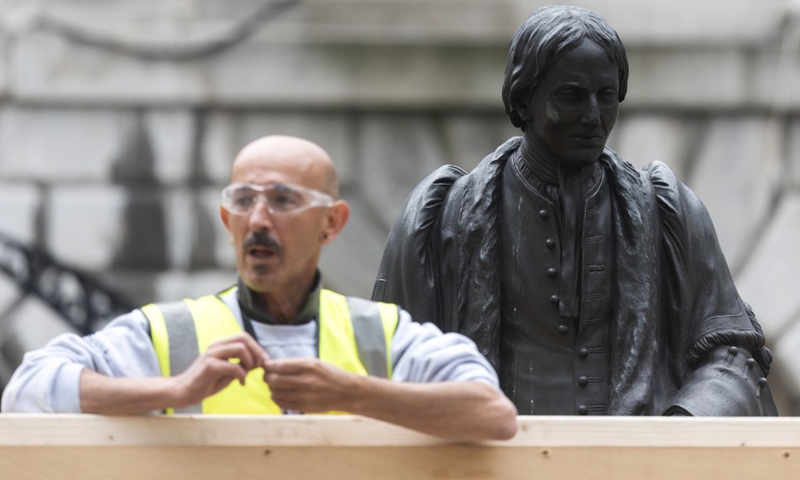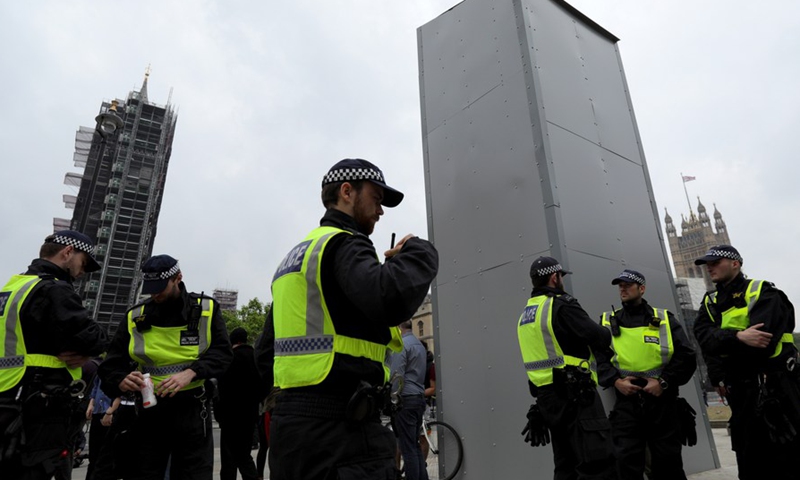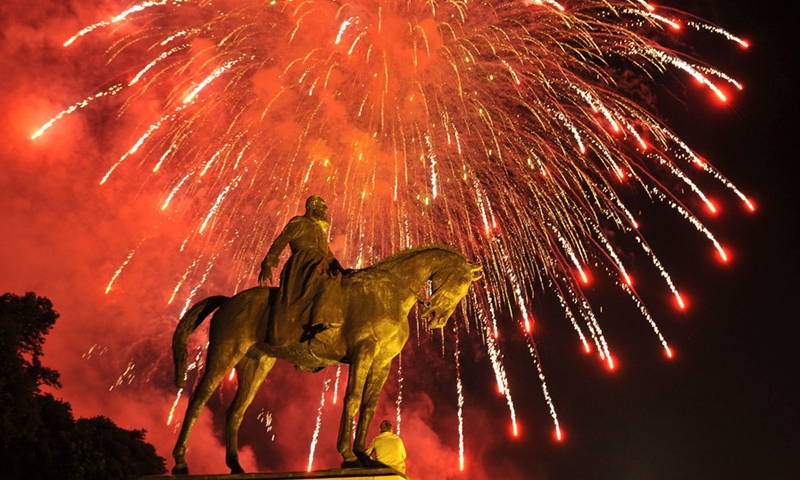Statues of controversial figures under attack in Western protests over George Floyd's death
Source:Xinhua Published: 2020/6/16 13:21:37

A worker boards up the statue of Thomas Guy at Guy's Hospital in London, Britain, on June 12, 2020. (Photo by Ray Tang/Xinhua)
The wave of protests in Western countries triggered by the death of African American George Floyd has featured damage to statues of historical figures who are deemed controversial given their association with slavery and racism.
The trend was built up over weeks of demonstrations after Floyd's death at the hands of white police officers in the U.S. city of Minneapolis on May 25. The demonstrations, while urging an end to racial injustice and police brutality, displayed a reflection on history, including the colonial era.
Statues of these controversial figures were defaced, damaged or taken down.
For example, protestors tore down a statue of a 17th-century slave trader in Bristol, and the words "was a racist" was scrawled after the name of the British politician, Winston Churchill, on his statue at Parliament Square in central London.
This has prompted London Mayor Sadiq Khan to order the covering of several statues, including this one of Churchill, as a precautionary measure.

Police officers stand guard next to a protective box installed around the statue of Winston Churchill during a protest in London, Britain, on June 12, 2020. (Photo by Tim Ireland/Xinhua)
In his tweets on Friday, Prime Minister Boris Johnson said the fact that Churchill's statue needs protection from vandalism is "absurd and shameful."
Admitting that Churchill had expressed opinions "unacceptable to us today," Johnson said the statue of the British wartime leader "is a permanent reminder of his achievement in saving this country -- and the whole of Europe -- from a fascist and racist tyranny."
In Belgium's port city of Antwerp, a 150-year-old statue of the 19th-century Belgian King Leopold II -- a longtime target by anti-racism activists -- was set on fire and removed on June 9.

Fire works explode over the statue of King Leopold II (1835-1909) to celebrate the National Day in Brussels, capital of Belgium, late on July 21, 2009. (Xinhua/Wu Wei)
Removing statues of controversial figures has also been called for in certain cities of France, Italy, and Australia among other countries.
In the Unites States, the statues of the commander of the Confederate States Army during the American Civil War, Robert E. Lee, and the Italian explorer and navigator, Christopher Columbus, have taken the brunt.
In Boston, a statue of Columbus was recently beheaded, and according to media reports other ones were damaged in Richmond, Virginia and in Miami, Florida.
New York Governor Andrew Cuomo and New York City Mayor Bill de Blasio have both voiced opposition to removing the statue of Columbus near Central Park.
Virginia Governor Ralph Northam announced on June 4 the removal of a statue of Confederate General Lee.
Last week, House Speaker Nancy Pelosi called once again for the removal of the remaining Confederate statues from the U.S. Capitol, writing in a letter: "Their statues pay homage to hate, not heritage. They must be removed."
Posted in: EUROPE,WORLD FOCUS